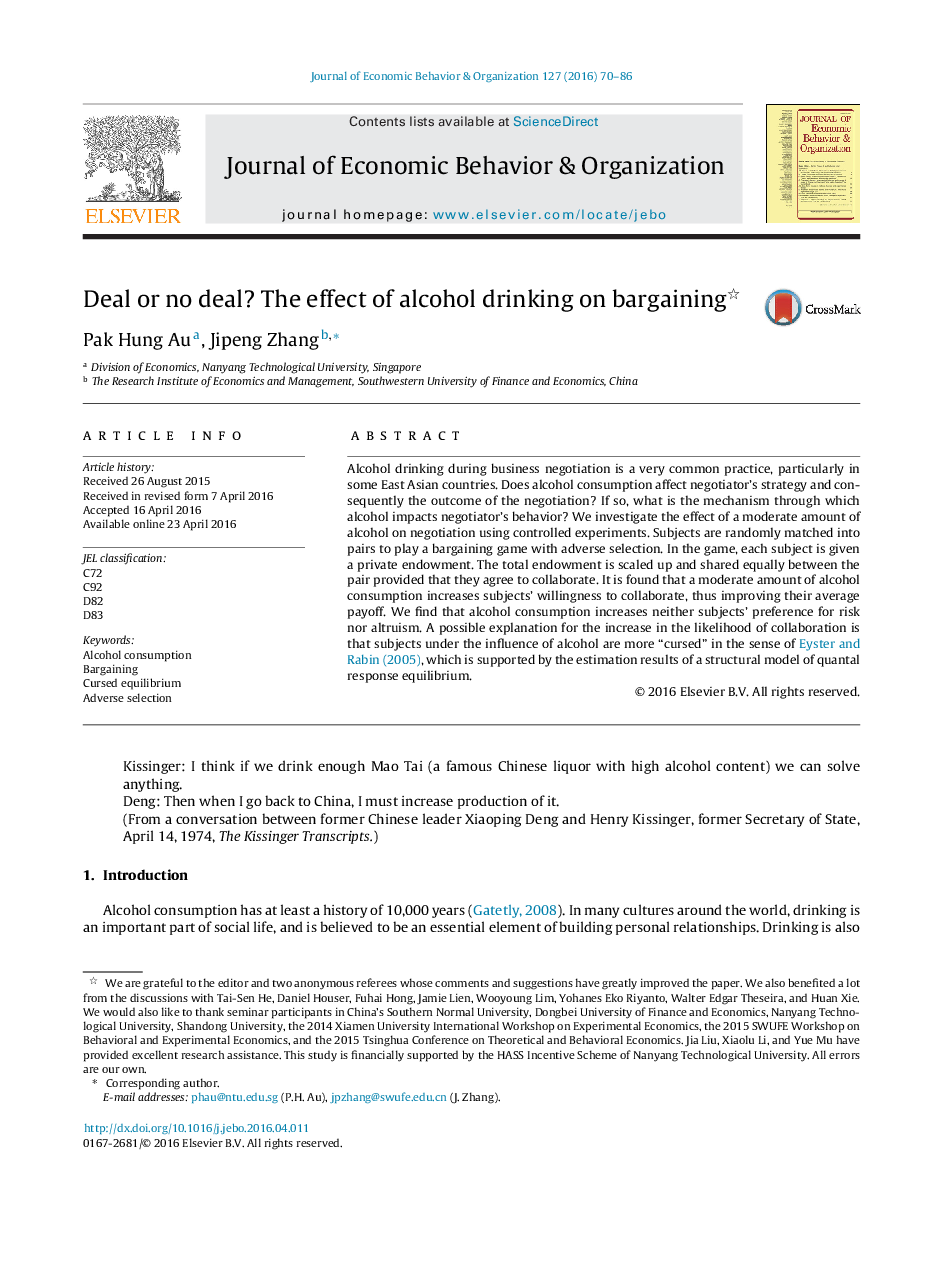| Article ID | Journal | Published Year | Pages | File Type |
|---|---|---|---|---|
| 7242818 | Journal of Economic Behavior & Organization | 2016 | 17 Pages |
Abstract
Alcohol drinking during business negotiation is a very common practice, particularly in some East Asian countries. Does alcohol consumption affect negotiator's strategy and consequently the outcome of the negotiation? If so, what is the mechanism through which alcohol impacts negotiator's behavior? We investigate the effect of a moderate amount of alcohol on negotiation using controlled experiments. Subjects are randomly matched into pairs to play a bargaining game with adverse selection. In the game, each subject is given a private endowment. The total endowment is scaled up and shared equally between the pair provided that they agree to collaborate. It is found that a moderate amount of alcohol consumption increases subjects' willingness to collaborate, thus improving their average payoff. We find that alcohol consumption increases neither subjects' preference for risk nor altruism. A possible explanation for the increase in the likelihood of collaboration is that subjects under the influence of alcohol are more “cursed” in the sense of Eyster and Rabin (2005), which is supported by the estimation results of a structural model of quantal response equilibrium.
Related Topics
Social Sciences and Humanities
Economics, Econometrics and Finance
Economics and Econometrics
Authors
Pak Hung Au, Jipeng Zhang,
